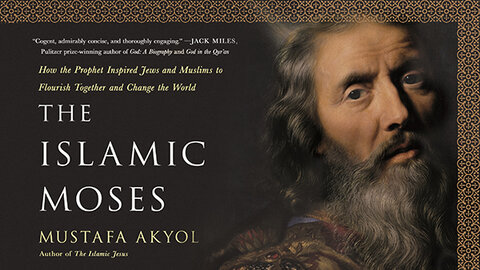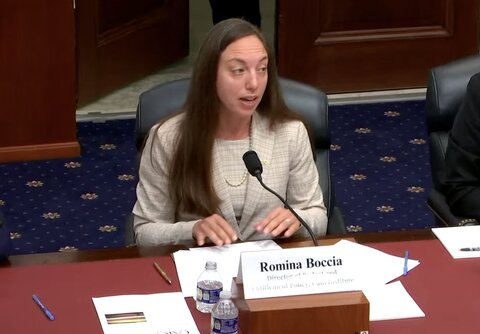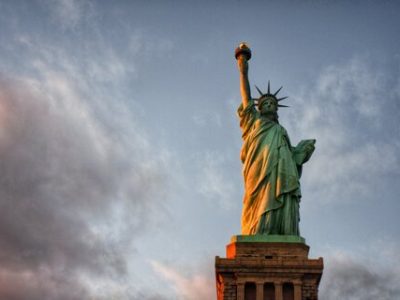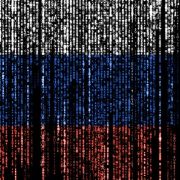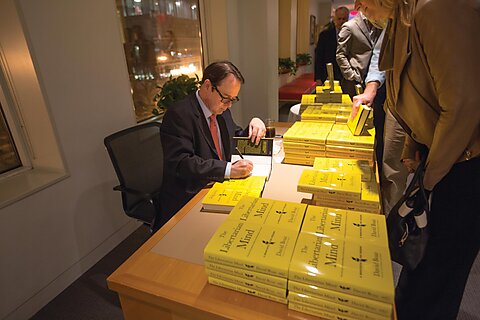
David Boaz led an exemplary life. To know him is to admire him and even to love him. Through him, so many people were introduced to the humane, decent, rational, and compassionate case for “the simple system of natural liberty.” So many successful and happy careers were launched. So many people were gently taught how to be effective promoters of their principles, to be good colleagues, and to be better people. So many tears are being shed for the loss of our guide, our inspiration, our friend.
David came from Kentucky and he never quite lost the Kentucky twang. He became active in the promotion of liberty in college. He embraced the principles of treating every human being with respect and the presumption of liberty, and those principles infused his thought and his actions until his last days.
I was 18 and David was 21 when we met in August 1975 in New York at the national nominating convention of the (then) Libertarian Party. I saw a handsome man sitting on a display table swinging his legs and parrying arguments about whether a stateless society could be stable and free; he didn’t think it could be and he defended constitutionally limited government as the best we could get. I was attracted like a bumblebee to a daisy. He was funny and clever and yet modest.
Over 49 years that combination of wit and intellect and humility characterized him. For five decades he worked to secure equal liberty for each and every human being. It was his life mission, to which he hewed with extraordinary steadfastness. He was a passionate champion of ending the drug war and was active in and served on the advisory board of the National Organization for the Reform of Marijuana Laws, despite never having tried marijuana, tobacco, or any other intoxicating substance. (David never drank alcohol or smoked anything. His only vice was his preference for Coca‐Cola, which would lead him to choose restaurants on the basis of which cola products they served.)
He was honest. He was generous of spirit; he never questioned the motives of others, but sought to understand them, to learn from them, and to win them over to the cause of liberty, the only political idea that can be embraced by every human being without conflict or violence.
His book The Libertarian Mind is one of the finest, most accessible, and most reasonable cases for liberty. David wrote it to introduce, to persuade, to motivate. Like his dear friend P. J. O’Rourke, who effectively rewrote Henry Hazlitt’s Economics in One Lesson, which in turn was a rewriting of Frédéric Bastiat’s “What Is Seen and What Is Not Seen,” David knew that writers who are today teenagers will need to make the case for liberty anew for their generation. And that the case will need to be made again by people yet unborn. (The Libertarian Mind will come out next year in a revised paperback edition, David’s last gift to us.)
David’s steadfastness is an example to us all. Many people become enthusiastically involved in the cause of liberty, or one of its subsidiary campaigns, and then become discouraged and drop away when the Great Victory doesn’t happen in one, two, three, or even ten years. Not David. He always knew that the changes he sought may not happen until he would not be with us to celebrate them. Some did happen. The fall of the USSR and its empire of irrationality and cruelty. The end of apartheid’s humiliation and oppression. Marriage equality. Legalization of marijuana. Through it all, through failures and successes, through slow and incremental steps, he worked tirelessly for the realization of goals that he knew would not happen until long after we are dust and ashes.
One of David’s oft used anecdotes concerned when he was challenged to name a success of the libertarian movement.
I was asked once by some skeptics what the most important libertarian accomplishment ever was. I said, “the abolition of slavery.” Okay, they conceded. Name another. I thought more carefully and said “bringing power under the rule of law.” That was a revolutionary achievement, but it’s incomplete. It’s what we still fight for. Heroes like Mao Yushi, Chen Guangcheng, and thousands of others fight for it. We fight for it here.
We still fight for it. We will never stop fighting for it. David Boaz is our inspiration. He never stopped. He never will, because when we fight for the rule of law, he is with us. He will always be with us.


